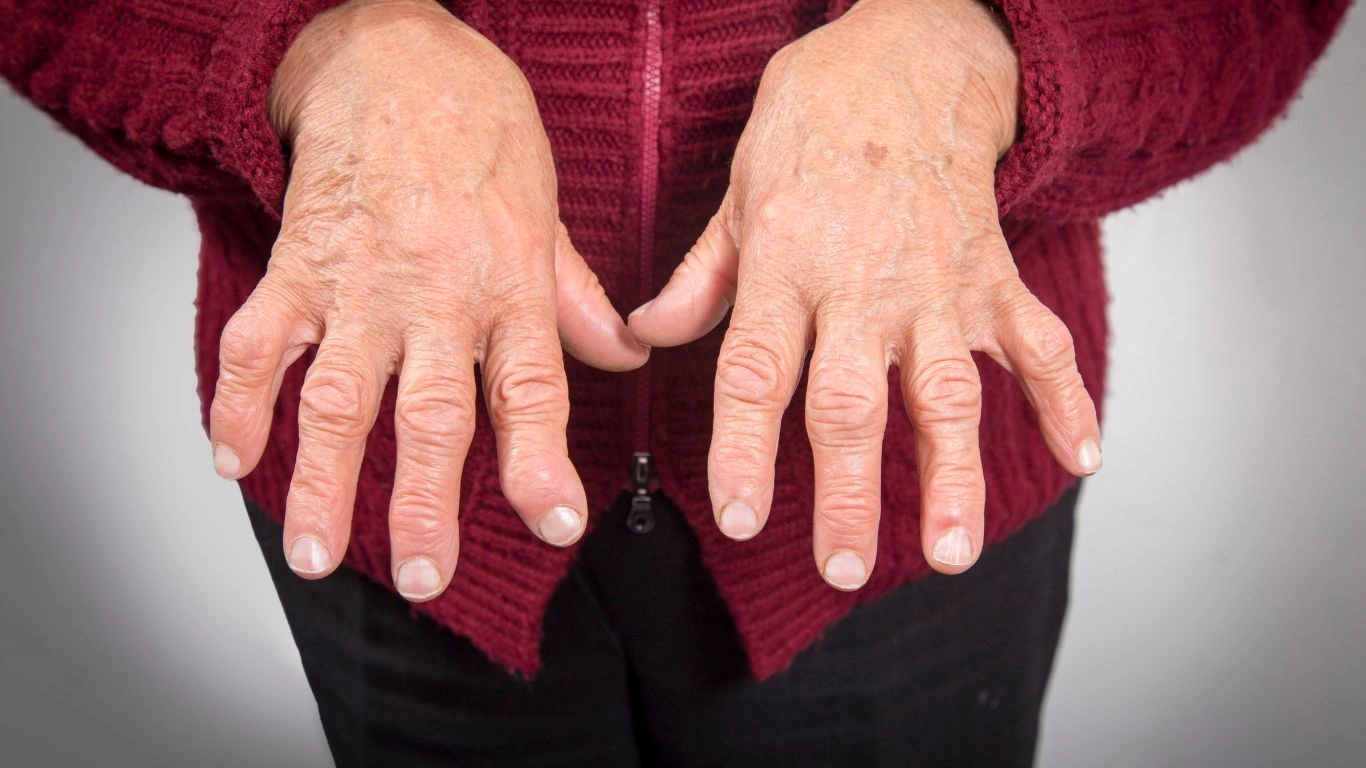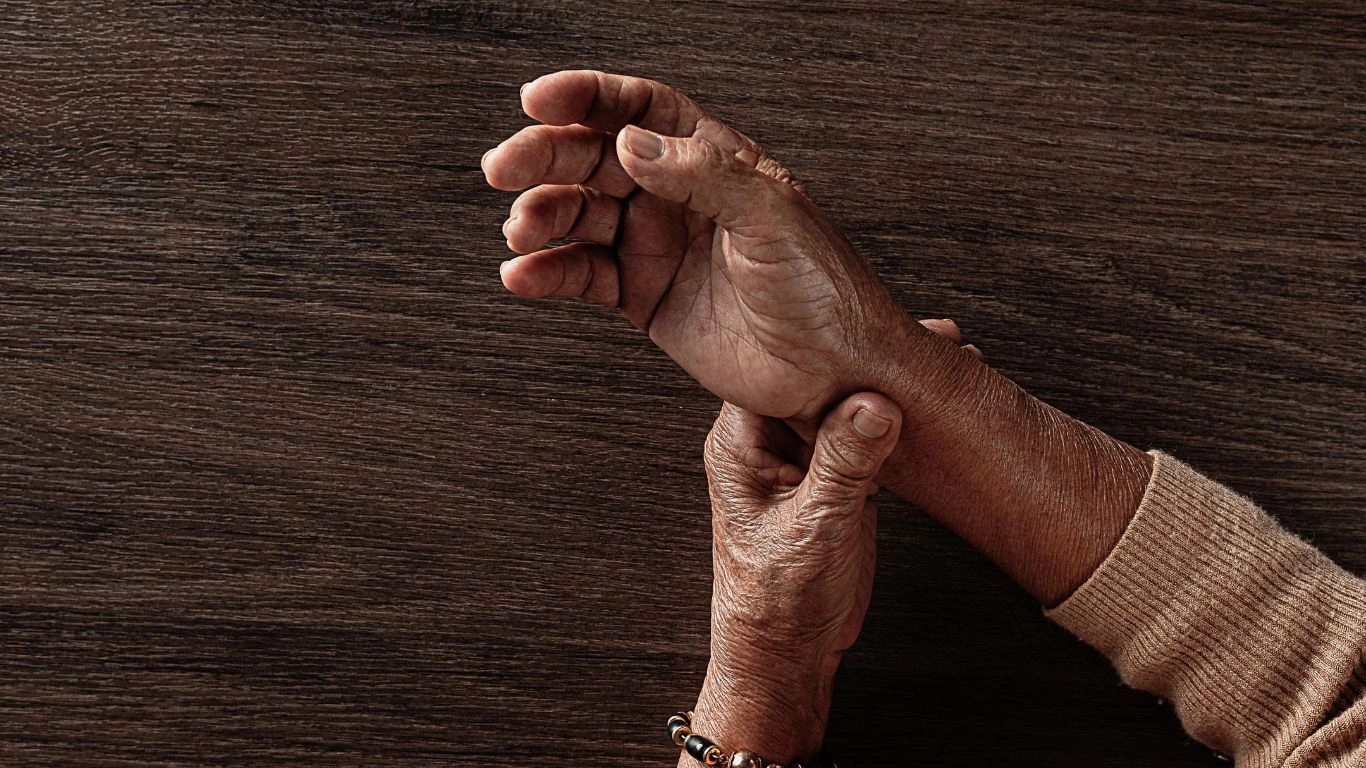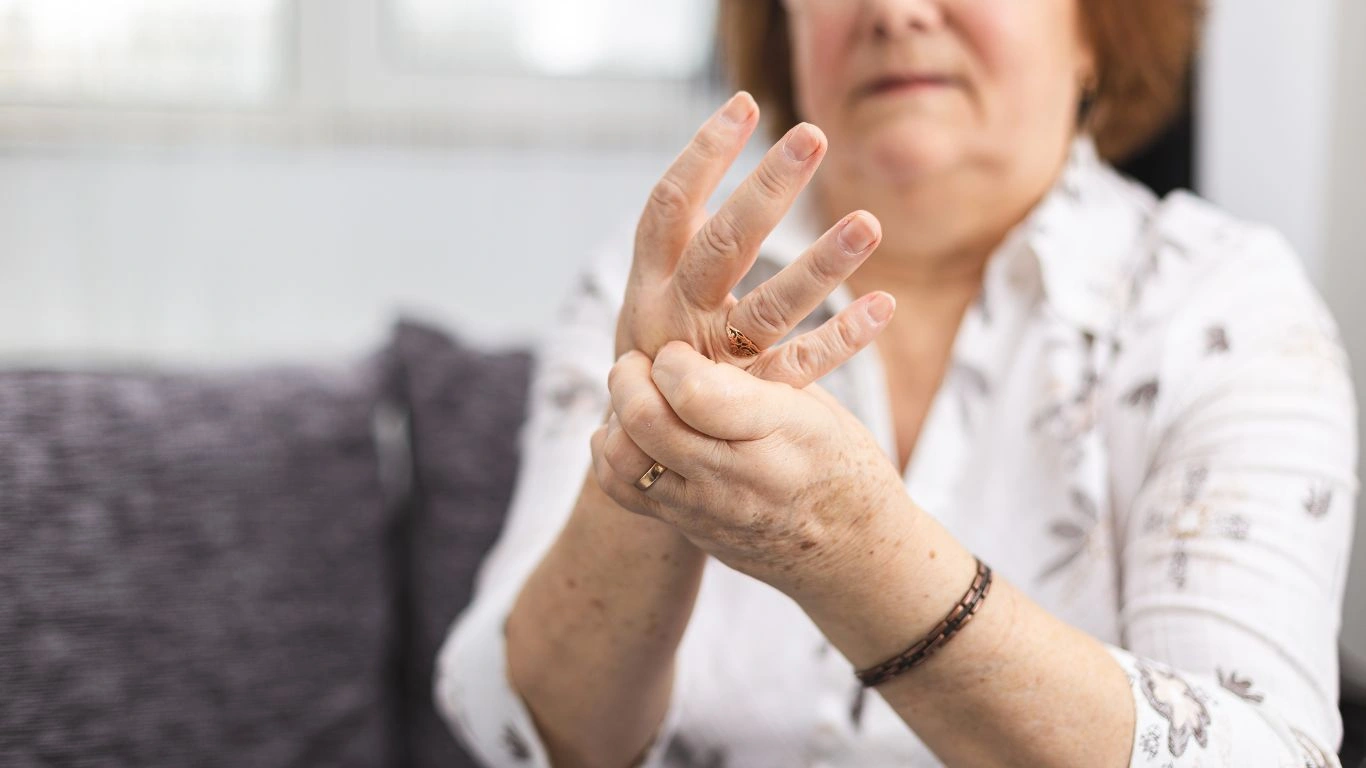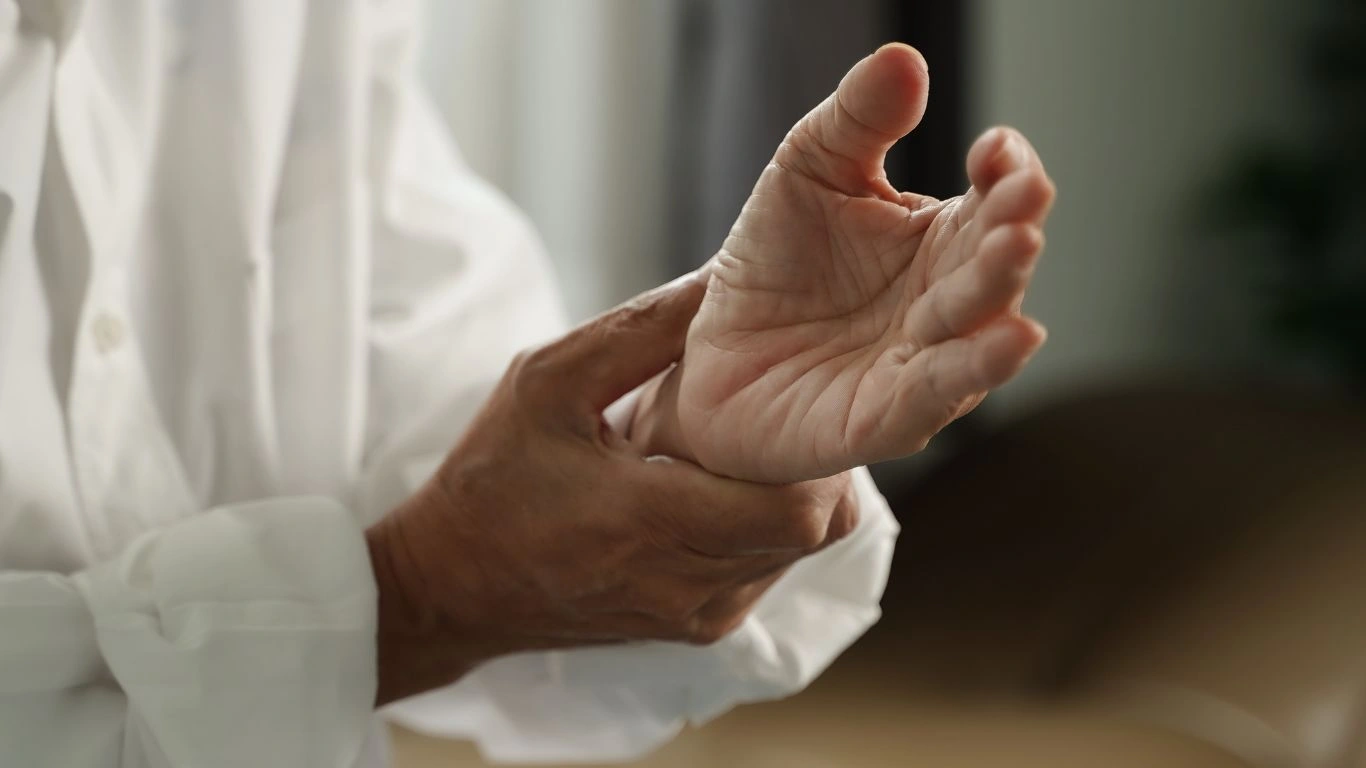Rheumatoid Arthritis and the Importance of Sleep: A Must-Know Connection
As a Rheumatology Nurse Practitioner, I’ve seen firsthand how people with rheumatoid arthritis (RA) often struggle not only with joint pain and inflammation but also with the often-overlooked impact of poor sleep. Many patients come to me seeking advice on how to manage their condition, but one of the most important aspects of RA care tends to get brushed aside: sleep. It’s easy to underestimate the importance of sleep, especially when you’re caught up in the challenges of daily living, but did you know that sleep plays a crucial role in managing your symptoms and overall health? Let’s dive into why sleep is so critical for those with rheumatoid arthritis and how improving your sleep habits can make a significant difference in your well-being.
The Connection Between Rheumatoid Arthritis and Sleep

Rheumatoid arthritis is a chronic autoimmune condition that primarily affects the joints, causing pain, swelling, and stiffness. As anyone living with RA knows, these symptoms can fluctuate throughout the day, and they can make even the simplest tasks feel daunting. However, one thing that often exacerbates RA symptoms is inadequate sleep. And when you don’t get enough quality rest, your body’s inflammatory responses can worsen, leading to more severe flare-ups.
The relationship between sleep and RA is bidirectional, meaning poor sleep can worsen the symptoms of RA, while RA can also make it harder to get restful sleep. This cycle can be frustrating, but understanding how they are connected can help you take steps to break it.
How Sleep Impacts Inflammation and Pain
One of the most important reasons sleep is so vital in RA management is its direct effect on inflammation levels. Inflammation is at the heart of rheumatoid arthritis, and research has shown that poor sleep can actually increase the levels of pro-inflammatory cytokines in the body. These cytokines are responsible for triggering the inflammation that leads to joint damage and pain in RA patients. When you don’t get enough sleep, your immune system is more likely to produce these cytokines, which, in turn, can make you feel even worse. It’s a vicious cycle: the more inflammation, the harder it becomes to sleep, and the harder it is to sleep, the more inflammation your body experiences.
The Role of Sleep in Pain Perception
It’s not just inflammation that’s impacted by poor sleep—it’s also your perception of pain. Studies have shown that sleep deprivation can lower your pain tolerance and make you more sensitive to pain. In fact, many RA patients report feeling their pain more intensely during flare-ups when they’ve had a bad night’s sleep. When your body is deprived of deep, restorative sleep, the ability to manage pain effectively is diminished, making even small discomforts feel unbearable. It’s not just about joint pain; poor sleep can also affect the way your body processes and responds to other discomforts, such as muscle stiffness and headaches, both of which are common in people with RA.
Factors That Affect Sleep Quality in RA

While the relationship between RA and sleep is complex, several factors can directly affect your ability to get quality rest. Let’s take a closer look at some of the most common reasons RA patients struggle with sleep.
Pain and Discomfort
The most obvious factor is the pain associated with rheumatoid arthritis. Whether it’s the throbbing in your joints or the stiffness that makes it hard to move, RA pain can be a major barrier to a good night’s sleep. Many patients find that their pain is worse at night, possibly due to changes in body posture or the fact that the body naturally cools down at night, which can exacerbate stiffness. As the pain intensifies, so does the difficulty falling asleep or staying asleep.
Restless Leg Syndrome and Sleep Apnea
Another common issue for people with RA is the development of other sleep disorders, like restless leg syndrome (RLS) and sleep apnea. Both of these conditions are more prevalent in individuals with rheumatoid arthritis. Restless leg syndrome causes an uncomfortable sensation in the legs that makes it difficult to stay still, and it tends to worsen in the evening or at night. On the other hand, sleep apnea, a condition where your breathing repeatedly stops and starts during sleep, has also been found to be more common in RA patients. These additional sleep disturbances can compound the difficulties of getting a good night’s rest.
Medications and Treatment Side Effects
Medications are often a necessary part of RA treatment, but some drugs used to manage the disease can affect sleep. For instance, corticosteroids, which are frequently prescribed to control inflammation, can cause insomnia and disrupt your natural sleep-wake cycle. Pain relievers, such as NSAIDs, can also have an impact on your ability to sleep. While they may reduce pain and discomfort, some NSAIDs can cause stomach issues or make you feel restless, both of which can interfere with sleep. It’s crucial to work closely with your healthcare provider to balance your treatment regimen and minimize its impact on your sleep.
Tips for Improving Sleep with Rheumatoid Arthritis

As a nurse practitioner, one of the most common pieces of advice I give to my patients with RA is to prioritize sleep. It’s one of the most powerful tools you have in managing your condition. Here are a few tips that can help improve sleep quality, even with RA:
- Create a Consistent Sleep Schedule: Go to bed and wake up at the same time every day, even on weekends. A consistent sleep schedule helps regulate your body’s internal clock and can make it easier to fall asleep at night.
- Manage Pain Effectively: Work with your healthcare provider to find a pain management plan that works for you. This might include medication, physical therapy, or lifestyle changes that help reduce inflammation and pain.
- Make Your Sleep Environment Comfortable: Ensure your bedroom is quiet, dark, and cool. Use comfortable pillows and mattresses to support your joints and reduce discomfort while sleeping.
- Practice Relaxation Techniques: Engage in relaxation methods, such as deep breathing, meditation, or gentle yoga, before bed. These techniques can help calm your mind and body, making it easier to drift off to sleep.
Improving sleep may not provide an instant fix, but over time, it can significantly improve your RA symptoms and quality of life. The key is consistency—making sleep a priority can lead to better days with less pain and more energy.
Understanding the Role of Sleep Hygiene in Managing RA

Now that we’ve discussed the various factors that impact sleep when living with rheumatoid arthritis, let’s dive into a crucial aspect of improving your sleep: sleep hygiene. Sleep hygiene refers to the habits and practices that help ensure a good night’s rest. For people with RA, sleep hygiene isn’t just about avoiding caffeine before bed (although that’s important too!)—it involves making lifestyle changes and creating an environment that supports restorative sleep. In my experience as a nurse practitioner, I often work with my patients to build better sleep habits, and it can make a world of difference.
Why Sleep Hygiene Matters for RA Patients
Sleep hygiene isn’t just a buzzword; it’s a proven way to improve the quality of your sleep, especially when you have a chronic condition like RA. A person with RA might struggle with discomfort at night, but establishing a sleep routine can help overcome these obstacles. When you improve your sleep hygiene, you essentially send the right signals to your body, teaching it that it’s time to wind down and relax. Without these cues, your body can become restless, and you may find yourself tossing and turning all night.
In addition, a good sleep routine can reduce stress, which is essential for those with RA. Stress can increase inflammation, making your pain worse. By focusing on creating a peaceful, comfortable, and consistent sleep environment, you can help reduce your stress levels and improve your symptoms over time.
Steps to Improve Your Sleep Hygiene
If you’re looking to improve your sleep hygiene, here are some steps you can take:
- Establish a Consistent Sleep Schedule: Going to bed and waking up at the same time every day, even on weekends, helps regulate your internal clock. It trains your body to fall asleep more easily and stay asleep throughout the night.
- Limit Screen Time Before Bed: The blue light emitted by phones, tablets, and computers can interfere with your ability to fall asleep. Try to avoid these screens for at least an hour before bed. Instead, read a book or listen to calming music to wind down.
- Create a Calming Bedtime Routine: A warm bath, light stretching, or meditation can all help relax your body and mind, signaling to your body that it’s time to wind down for the night.
- Keep Your Bedroom Comfortable: Make sure your mattress and pillows are supportive. Consider investing in memory foam pillows or mattress toppers that can help with joint pain and provide better sleep. A cool, dark room is ideal for promoting deep sleep.
The Link Between Stress and Rheumatoid Arthritis Flare-Ups

We’ve already touched on how sleep and inflammation are linked, but let’s dive a little deeper into one of the biggest culprits behind poor sleep in RA patients: stress. Stress is one of those things that can sneak up on you, often without you even realizing its impact on your body. But for people with rheumatoid arthritis, stress can act as a trigger for flare-ups and worsen existing symptoms. In fact, stress doesn’t just make sleep harder—it can actively contribute to the pain and stiffness you feel throughout the day.
When you’re stressed, your body produces cortisol, a hormone that is essential for managing your body’s fight-or-flight response. But when cortisol levels are consistently high—like they often are when you’re dealing with stress—they can increase inflammation, making RA symptoms more intense. In other words, the more stressed you are, the more your body inflames, and the more difficult it becomes to find relief. This is why managing stress isn’t just a “nice-to-have”—it’s an essential part of managing RA symptoms.
Managing Stress for Better Sleep and Symptom Relief
Now that we know how stress impacts rheumatoid arthritis, let’s talk about how to manage it effectively. Here are a few techniques that can help you reduce stress and improve both your sleep and your RA symptoms:
- Mindfulness and Meditation: Practicing mindfulness or meditation can help you stay grounded and focused on the present moment. Regular practice has been shown to reduce stress, which in turn helps lower inflammation. Apps like Headspace or Calm are great resources to get started.
- Gentle Exercise: While it might seem counterintuitive, physical activity can actually reduce stress and help alleviate RA symptoms. Gentle exercises like yoga or walking can release endorphins, which are natural stress-relievers. These activities also promote better sleep.
- Talk About It: Talking to someone you trust can help relieve pent-up stress. Whether it’s a family member, a friend, or even a therapist, verbalizing your frustrations can help you process emotions and feel lighter.
- Deep Breathing Exercises: Deep breathing can calm your nervous system and help you unwind before bed. Try inhaling deeply for four seconds, holding for four seconds, and exhaling for four seconds. Repeat for several minutes to relax.
The Impact of Nutrition on Sleep and RA Symptoms

It’s no secret that diet plays an important role in managing rheumatoid arthritis. What you eat can either fuel or reduce inflammation in your body, and it can also affect the quality of your sleep. As someone who’s worked with numerous RA patients over the years, I’ve seen firsthand how small changes to diet can make a big difference in how well you sleep and how you feel during the day. So, if you’re looking to improve both your RA symptoms and sleep quality, it’s time to take a closer look at your nutrition.
Anti-Inflammatory Foods for Better Sleep
Just like some foods can worsen inflammation, others can help reduce it. Anti-inflammatory foods are key for people with RA. These foods not only help lower overall inflammation, but they can also promote better sleep by stabilizing blood sugar levels and supporting your body’s natural circadian rhythm.
Here are some foods that are particularly beneficial for people with rheumatoid arthritis:
- Fatty Fish: Rich in omega-3 fatty acids, fatty fish like salmon, sardines, and mackerel can help reduce inflammation and improve heart health.
- Leafy Greens: Spinach, kale, and other dark leafy greens are packed with antioxidants and anti-inflammatory properties.
- Cherries and Berries: These fruits contain natural melatonin, which can help regulate your sleep-wake cycle and improve sleep quality.
- Turmeric and Ginger: Known for their anti-inflammatory benefits, both turmeric and ginger can help calm inflammation in your joints, making them a great addition to your diet.
Making small, sustainable changes to your diet and focusing on sleep hygiene, stress management, and anti-inflammatory foods can help create a holistic approach to managing rheumatoid arthritis. The path to better sleep and improved symptoms won’t happen overnight, but with consistent effort, you’ll likely notice significant improvements over time.
How Technology Can Help Manage Sleep and RA

In today’s digital age, technology offers some exciting ways to help manage rheumatoid arthritis (RA) and improve sleep. As a healthcare provider, I’ve seen more and more patients incorporate tech tools into their daily routines to enhance their sleep quality and monitor their RA symptoms. From wearable devices that track your sleep patterns to apps that guide you through relaxation exercises, there are plenty of options to consider. Let’s explore some of the technology that’s available and how it can make a real difference in managing your RA and getting better sleep.
Sleep Tracking Devices
Wearable technology has come a long way, and now there are a number of sleep tracking devices that can give you a detailed picture of your nightly rest. These devices, which range from smartwatches to fitness trackers, monitor sleep stages, heart rate, and even body movement during the night. As someone who’s worked with RA patients, I’ve found that these devices can be incredibly helpful in understanding how your sleep quality changes over time. For example, a patient might be able to pinpoint when they’re having restless nights due to pain or when their sleep quality improves after adjusting their sleep environment or medications.
Some of the more popular sleep trackers include:
- Fitbit: Known for its activity tracking, Fitbit also offers sleep tracking features that measure light, deep, and REM sleep stages. It also gives you a sleep score to help you gauge the overall quality of your rest.
- Oura Ring: This small, wearable device provides detailed insights into your sleep cycle, heart rate, and body temperature, all of which can be useful for RA patients looking to improve their sleep.
- Withings Sleep Analyzer: This device monitors your sleep cycles and even detects snoring and sleep apnea. For RA patients dealing with these issues, it’s a useful tool to track and address these additional sleep challenges.
These devices can also sync with apps on your smartphone to give you even more detailed insights into your sleeping habits. By using these tools, you can monitor patterns and make data-driven adjustments to improve your overall sleep and, consequently, your RA symptoms.
Relaxation Apps for Better Sleep
Another helpful aspect of technology is the wide range of apps designed to reduce stress and promote better sleep. As a nurse practitioner, I often recommend these apps to patients who are struggling with sleep, as they can provide valuable resources for managing pain, stress, and anxiety—key factors that interfere with rest. Many of these apps offer guided meditations, breathing exercises, and soothing sounds designed to help you relax and prepare your body for sleep. Here are a few of my go-to recommendations:
- Calm: Calm is a popular app that provides a variety of guided meditations, soothing sounds, and sleep stories. It’s particularly helpful for those looking to reduce stress before bedtime.
- Headspace: Known for its mindfulness and meditation programs, Headspace also offers sleepcasts—relaxing audio experiences designed to help you wind down.
- Pzizz: This app is designed to help you get deep, restorative sleep with a combination of sleep-optimized soundscapes and guided relaxation techniques.
Many RA patients find these apps useful for calming the mind and easing muscle tension before bed. Whether it’s through gentle meditation or calming sounds, these resources are invaluable for those who want to improve their sleep hygiene and manage stress at the same time.
Exercise and Sleep: The RA Connection

As we’ve already touched on, gentle exercise plays an essential role in managing rheumatoid arthritis, and it can also have a significant impact on the quality of your sleep. Exercise helps reduce inflammation, increases endorphins (the body’s natural pain relievers), and improves overall physical health. These benefits are especially important for those living with RA, where joint pain and stiffness can often interfere with daily activities. But the benefits don’t stop there—regular physical activity also helps improve sleep by regulating your circadian rhythm and reducing stress levels.
The Best Types of Exercise for RA and Better Sleep
It’s important to choose exercises that are gentle on your joints and tailored to your individual needs. As an RA patient, you don’t want to overdo it, but regular, low-impact exercise can make a world of difference. Here are some of the best types of exercise for people with RA:
- Swimming: Swimming is one of the best exercises for RA patients because it’s easy on the joints. The buoyancy of the water reduces pressure on your body, making it ideal for individuals with joint pain.
- Walking: A simple walk can go a long way in improving circulation and reducing stiffness. Walking is also an excellent low-impact cardio workout that can help you fall asleep faster.
- Yoga: Yoga is a great way to stretch your muscles and increase flexibility, which is especially helpful for reducing joint stiffness. There are even yoga programs specifically designed for people with RA, offering modified poses that reduce strain.
- Tai Chi: This slow, controlled form of exercise is excellent for improving balance, flexibility, and reducing stress. Many RA patients find Tai Chi to be a peaceful and effective form of exercise that helps with both sleep and pain management.
Exercising during the day can also promote better sleep at night. However, it’s important not to exercise too close to bedtime, as it could actually make it harder to fall asleep. Aim for moderate exercise at least 3-4 hours before going to bed to give your body enough time to wind down.
Important Considerations and Disclaimer
Before making any significant changes to your exercise routine, diet, or sleep habits, it’s essential to consult with your healthcare provider, especially if you have rheumatoid arthritis. Your doctor can help guide you on what’s safe and effective for your specific condition, taking into account your current symptoms, medications, and overall health.
While lifestyle changes can certainly make a difference, managing rheumatoid arthritis requires a comprehensive approach that includes both medical treatment and self-care practices. Don’t hesitate to reach out to your healthcare team for personalized advice and support along the way.
Disclaimer: The information provided in this article is intended for educational purposes only and should not be considered medical advice. Always consult with your healthcare provider before making changes to your treatment plan, exercise routine, or diet. Individual results may vary based on your specific health conditions and needs.
For more resources on rheumatoid arthritis and related topics, check out reputable sources like Google and the latest research from medical journals. Knowledge is power, and taking a proactive approach to managing RA and sleep can greatly improve your quality of life.

Tarra Nugroho is a dedicated Nurse Practitioner with a strong foundation in family and preventive care. She brings both compassion and clinical expertise to her practice, focusing on patient-centered care and health education. As a contributor to Healthusias.com, Tarra translates medical knowledge into clear, empowering articles on topics like women’s health, chronic disease management, and lifestyle medicine. Her mission is simple: help people feel seen, heard, and informed—both in the clinic and through the content she creates. When she’s not caring for patients, Tarra enjoys weekend hikes, plant-based cooking, and curling up with a good health podcast.







